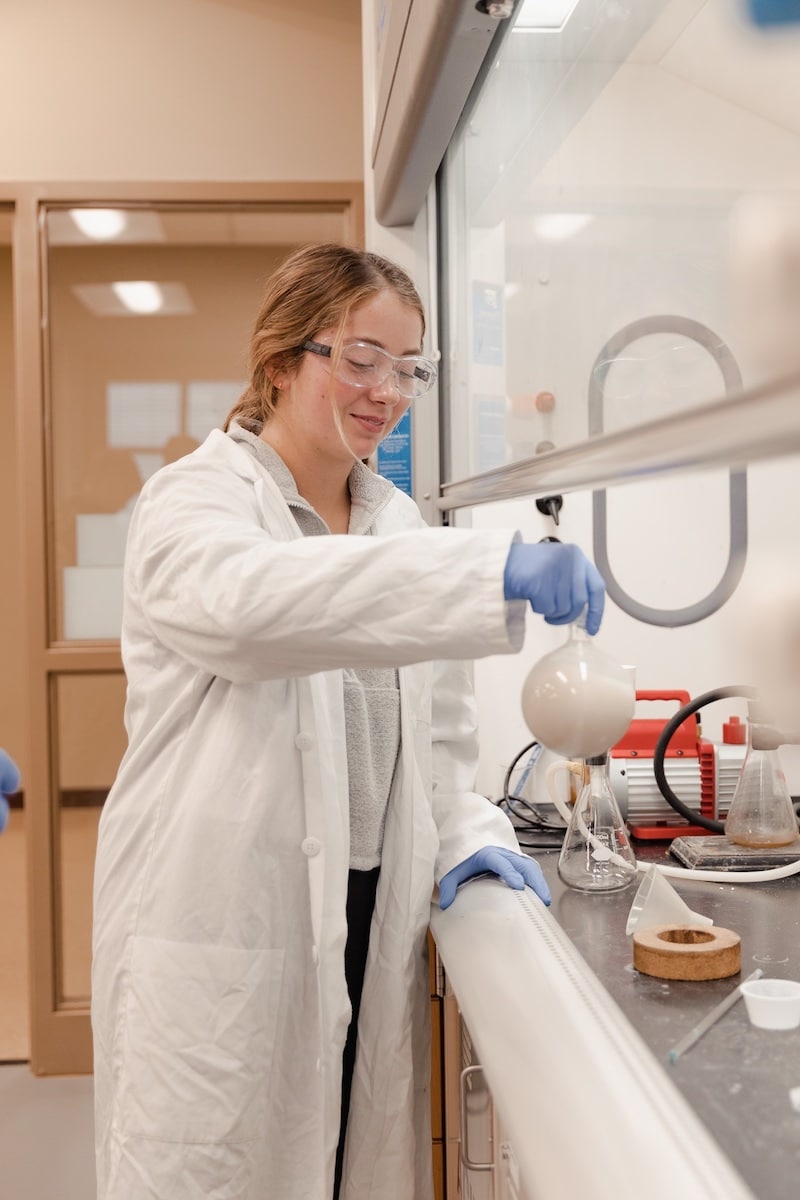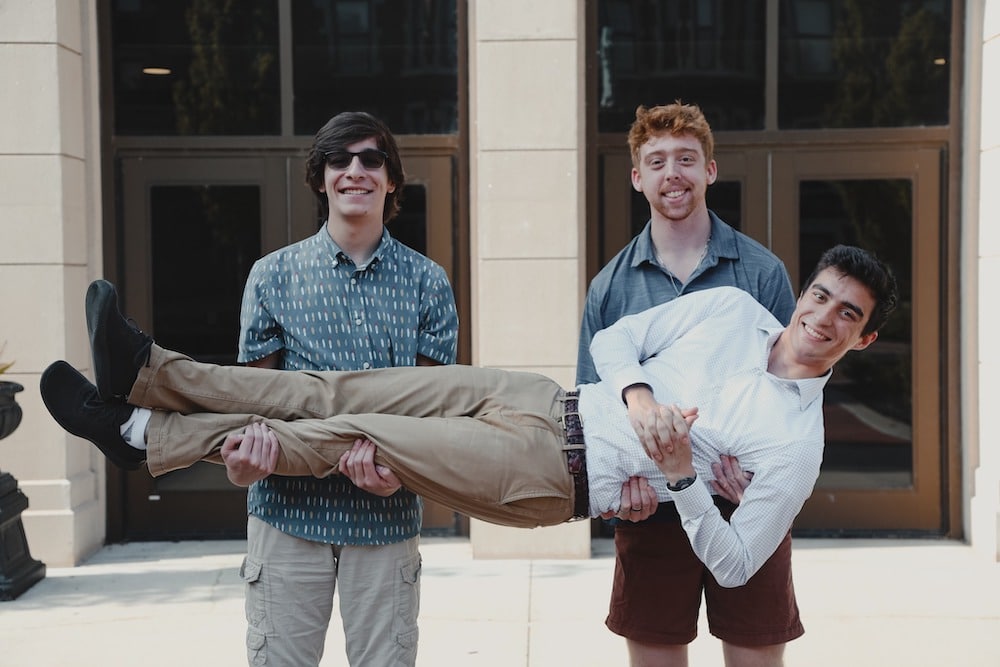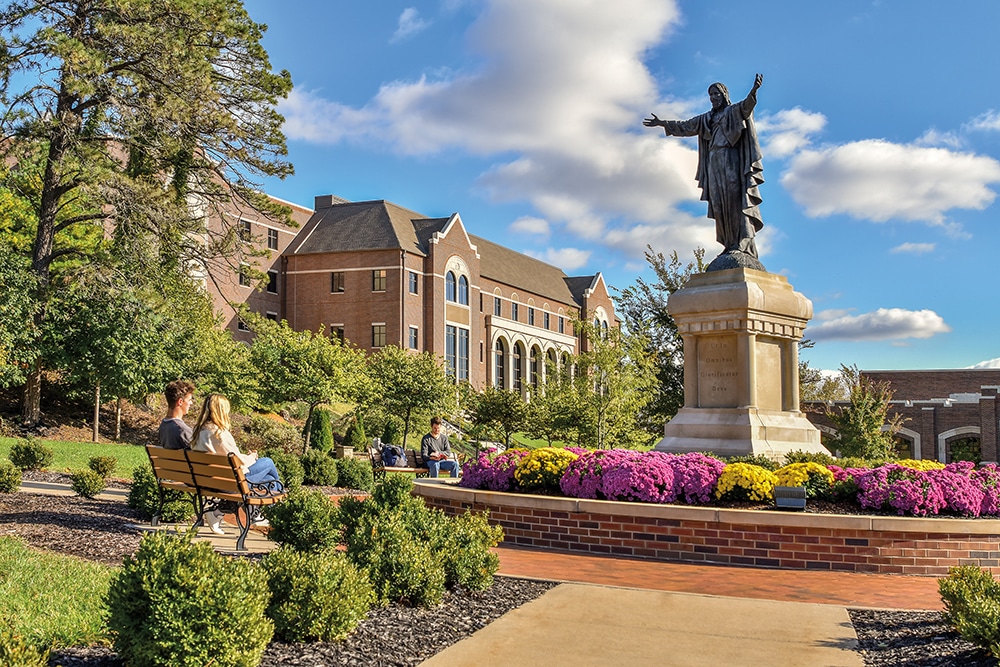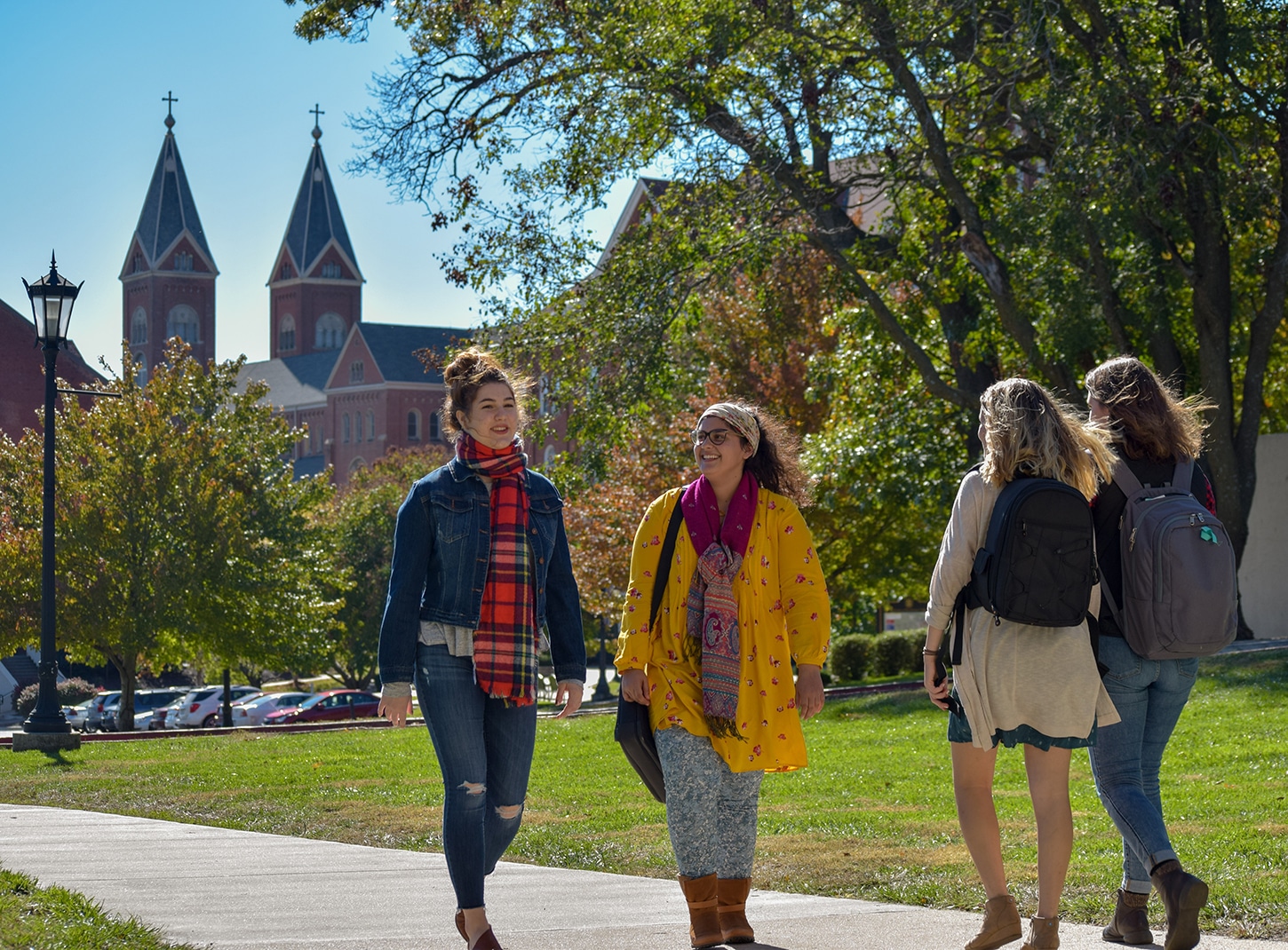“We are not expecting much from you,” Kansas City Archbishop Joseph Naumann told graduates of Benedictine College in Atchison, Kansas, last May. “Just to help transform culture, society and the world.”
Then he added: “You can do this!”
They believe him. “I have come up with ways that I believe I could transform culture wherever I go next,” Clare Blaney, senior biology major from Bloomington, Illinois, told me. How? “By living a Christ-centered life and by treating every person I encounter as if they are themselves Christ,” she said.
The college’s new big push is a plan to “Transform Culture in America,” and President Stephen Minnis explained how it began.
What was it for?
“We had spent all this time with the goal of ‘building one of America’s great Catholic colleges,'” he said. “Finally we stopped and asked ourselves, ‘Why? Why do we want to be one of America’s great Catholic colleges?'”
I was actually a witness to that moment. I am writer in residence at the college, teaching in the Department of Journalism and Mass Communications and serving as vice president of college relations. I was waiting outside the president’s office one morning when he and the dean of the college, Kimberly Shankman, walked in.
They were excitedly sharing that the same question had been nagging both of them: The college was boasting about two decades of record enrollment, several new residence halls, and five new academic buildings including a 100,000-square foot STEM building.
It was all wonderful — but what was it for? Their question became a board of directors discussion, then a faculty discussion, then a two-year process in which industry and thought leaders met with faculty, alumni, board members and students to answer the question: How can a college help change the world?
Read more Fall Catholic College articles here.
The answer was the Transforming Culture in America strategic plan, which has changed the way the college sees its mission. Much of its success has happened off campus:
- an alumnus public school teacher working with undergraduates to implement a human dignity curriculum that caught the attention of the Holy See Mission to the United Nations;
- a Spark Tank entrepreneurial formation program the college is using to help transform urban areas, starting in Ferguson, Missouri; and
- elementary and high school teachers coming to the campus to learn how to teach civic virtue and America’s founding principles.

Agents of change
But Priority 1 in the Transforming Culture plan is to form students like Blaney to be agents of change. The plan says that what the world needs to battle loneliness, hopelessness and polarization are “community, faith and scholarship” — the three hallmarks of the Benedictine charism, which are also the college’s mission. Students like Blaney challenge themselves in each area — she is a cheer captain (community), a Mass greeter (faith) and the treasurer of the Biology Club (scholarship).
“I have loved my time at Benedictine not because it has been easy, but quite frankly because it has been anything but easy,” she said. “Benedictine has given me so much academically, spiritually, and socially. The confidence I have gained through the past few years is something I will take with me forever.”
“I never knew how capable I was of doing such difficult things,” she said. “And for this reason, I have the confidence to say that I am prepared for whatever I do next. “
What she hopes to do next is occupational therapy; she met with me in my office after a meeting with President Minnis and a visiting family from a fellow Benedictine institution.

The answer to the universe
I also spoke with Nicholas Koval, a junior physics and philosophy major from Atlanta. He was on campus all summer working on a research project with the Benedictine College Physics Department. With two other students, he is researching molecular dynamics in intense laser fields. One of the students, an astronomy major, is modeling astrochemical reactions in protoplanetary disks.
Koval said a Catholic college doesn’t teach physics differently from a secular college, but it does bring a new attitude.
As a physics research intern he has learned that, “The study of physics is a deeply spiritual matter where we can have an encounter with God’s creation in both a creative and analytical way.”
“In our physics and math classes, we ask questions regarding the universe, its composition and dynamics. From there, in the required philosophy classes, we have the freedom to explore the nature of the universe and how we can comprehend things about it,” he said. “This beautiful train of thought is completed in our theology classes where we find the answer that this universe exists simply because God loves us.”
Koval said he has also learned to challenge himself in each aspect of the mission: he competes in varsity track and field and has appeared in Benedictine theatre (community), he is a Gregorian Fellow (faith) and a Presidential Scholar (scholarship).
“The small class sizes have created an inviting environment to develop close relationships with our professors,” he said, and the ability “to participate in the more creative side of physics via a research project.”
The Raven Standard
But another student working on campus this summer explained how each aspect of the mission can affect major change.
Kieran Amsberry of San Diego is a senior math major who is minoring in philosophy. He is president of the Math and Computer Science Club and vice president of the Math honors society, Kappa Mu Epsilon.
“The most surprising thing about community life at Benedictine College,” he said, is that “there is so much depth in the opportunities to live in communion with others … from intramurals to prayer and support groups.” Amsberry played on the intramural rugby team and plays pick-up ultimate frisbee now.
Minnis explained that the world needs experts in community-building, so the college very intentionally plans to provide them through the Raven Standard, which is built to deliver the Characteristics of a Raven. The idea is that they will bring community, faith and scholarships to all walks of life where they land.
“We worked with several groups to try to determine what makes a Raven special. Why would an employer say, ‘Get me a Raven’?” said Minnis.
Blaney, the Biology major I spoke with, said “I think I will be successful in my field due to the Characteristics of a Raven.”

One relationship at a time
Amsberry said the college’s faith life is integral to its community life.
“There is a ‘cloud of witnesses’ here on campus that points to the Lord,” he said. “You are not alone in the Faith, regardless of how much you’ve dipped your feet in the water. I have been supported … through my roommates, the monks, and even people I have barely talked to, through conversation and prayer.”
The college’s ultimate mission, though, is “to educate,” and like Koval, Amsberry said, “The personal relationships you build with your professors at Benedictine are unmatched. All of the professors of the mathematics and computer science departments have mentored me not only in my academic career, but also have given sage life advice.” They have also helped him secure research opportunities, he said.
Blaney said it all adds up to Transforming Culture in America — one relationship at a time.
“I want to make those around me feel like my professors, friends and administrators have made me feel the past few years,” she said.
“And I have the Faith to say that wherever I go next God and Momma Mary will take care of me.”





